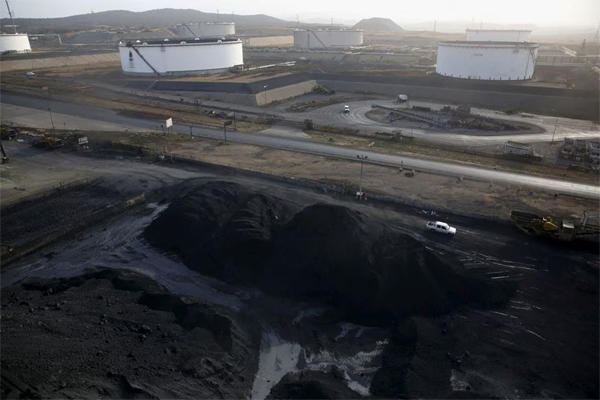
Deisy Buitrago, Marianna Parraga and Sudarshan Varadhan, Reuters
CARACAS/SINGAPORE
EnergiesNet.com 03 29 2023
Venezuela’s state-run oil company PDVSA is reviewing accounts of Maroil Trading, owned by Venezuelan shipping magnate Wilmer Ruperti, over outstanding debts from petroleum coke supply, five sources close to the audit said, amid a widescale anti-corruption probe.
Geneva-registered commodities firm Maroil Trading AG, responsible for most of the country’s exports of petroleum coke, also known as petcoke, owes PDVSA $423.7 million, according to a summary of commercial receivables dating to January 2020 provided by PDVSA’s trading division to its finance department.
That sum is just part of $21.2 billion that PDVSA holds in commercial accounts receivables – including $3.6 billion that are potentially unrecoverable – Reuters disclosed last week.
The unpaid invoices originated with dozens of little-known companies acting as middlemen for Venezuela’s oil exports since U.S. sanctions in 2020 halted deals with international trading firms and customers.
Venezuela’s Attorney General’s office in October began a probe after oil tankers absconded without full payment to PDVSA.
The investigation has focused on PDVSA and the judiciary, leading to the arrest of 21 officials and business people, with another 11 wanted. Prosecutors have moved to examine pricing discrepancies and sales by PDVSA units, company sources said.
Maroil’s unpaid invoices have jumped since late 2021 following its reorganization, repair and reopening of a key terminal on Venezuela’s eastern coast that handles the lion’s share of exports, the documents showed.
The company is disputing the bill claiming the list of accounts receivables fails to reflect its investments in the terminal, three of the sources said.
Maroil promised to invest at least $138 million in the infrastructure repairs, which now allow three simultaneous vessels to load petcoke, a byproduct from heavy oil processing. But PDVSA has so far recognized only a fraction of that investment, the three people said.
The ongoing review “is an account reconciliation,” one of the sources said, referring to PDVSA’s process of comparing accounts for the balance sheet with supporting documents including bank statements.
The audit also includes a review of Maroil’s operations, the prices negotiated with PDVSA, the handling of inventories and if any sales proceeds were deposited into Maroil’s bank accounts, according to two of the people.
Venezuela’s oil ministry and PDVSA did not reply to a request for comment. Maroil, which is no longer present at the Caracas address listed on local business directories, did not reply to a request for comment sent to the email address on its website.
EXPORTS FLOWING
Maroil in September took over sales of almost all Venezuela’s exports of petroleum coke, a fuel largely used to fire cement kilns, focusing mostly on India and China. The move was partly aimed at reducing risks for buyers since Maroil is not under U.S. sanctions.
Venezuela last year exported some 3.3 million metric tonnes of petcoke, mostly traded by Maroil, a big increase from the 490,000 metric tonnes of the previous year, according to PDVSA documents and Refinitiv Eikon tanker tracking data.
Three vessels were loading some 120,000 metric tonnes at the country’s eastern terminals on Tuesday, shipping schedules showed, an indication that the exports have not been halted.
But some buyers are worried on future deliveries in a market with limited alternative sellers amid shipping delays in Venezuela in recent months, two other people said.
Maroil boosted Venezuela’s petcoke exports following a commercial pact with PDVSA in 2016. Its handling of the business proved lucrative for itself and provided a new source of revenue for Venezuela’s sanction-hit oil sector.
Last year, PDVSA billed Maroil $45 per tonne of petroleum coke from the Petrocedeno project in one transaction seen by Reuters. A month later, a cement firm paid a reseller $220 per tonne for the same cargo upon arrival in India’s Jaigad port.
In Venezuela, two heavy oil upgrading facilities controlled by PDVSA, Petro San Felix and Petrocedeno, produce and store petcoke. PDVSA also exports from its Paraguana Refining Center, which mostly goes to Cuba.
Reporting by Marianna Parraga in Houston, Deisy Buitrago in Caracas and Sudarshan Varadhan in Singapore Editing by Marguerita Choy
reuters.com 03 28 2023











